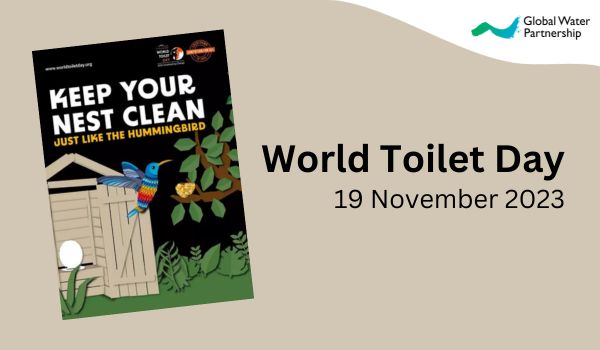Insufficient access to water and sanitation jeopardises health and is responsible for the deaths of around 1,000 children under five every day. According to WHO, around 829,000 people die every year from diseases such a cholera, typhoid and dysentery caused by unsafe sanitation, unclean drinking water and poor hygiene.
It’s time to accelerate change
Recognising sanitation as a human right, SDG6: ‘Clean water and sanitation for all’ is one of the 17 Sustainable Development Goals adopted by all UN Member States in 2015 as part of the 2030 Agenda. However, we are currently off track to reach the goal by 2030 – a shortcoming underscored by the World Toilet Day 2023 theme of Accelerating Change. Latest data show that action needs to happen on average four times faster for us to meet SDG6 on time.
GWP addresses WASH through the Global Leadership Programme that brings together policymakers in WASH and policymakers in water resources to co-develop policy responses to key water challenges in seven countries around the world. While many water experts have come to agree that water resources and WASH need to be addressed as a unit, the institutional reality in many (arguably most) countries is that these workstreams are very separate and seldom interact, much less jointly tackle challenges.
Be like the Hummingbird – act in the ways you can
In the ancient story, a hummingbird does what she can to fight a great fire – carrying droplets of water in her beak. Her actions – even though small – are helping solve a big problem.
- Everyone can do something to tackle the sanitation crisis.
Wondering what you can do to help make change happen? Educate yourself and take action on the levels you can. Learn more about the UN-Water Hummingbird campaign and the actions you can take on worldtoiletday.info.

